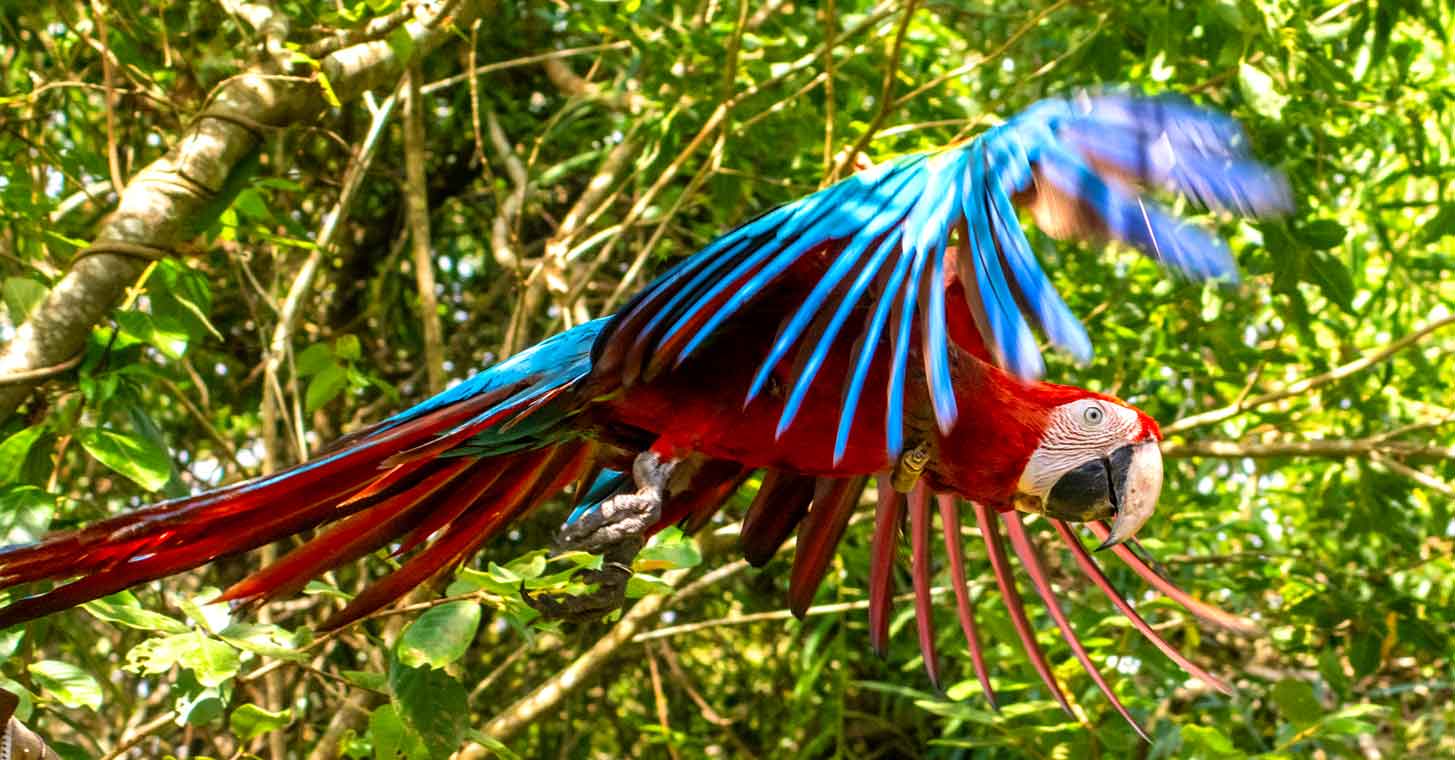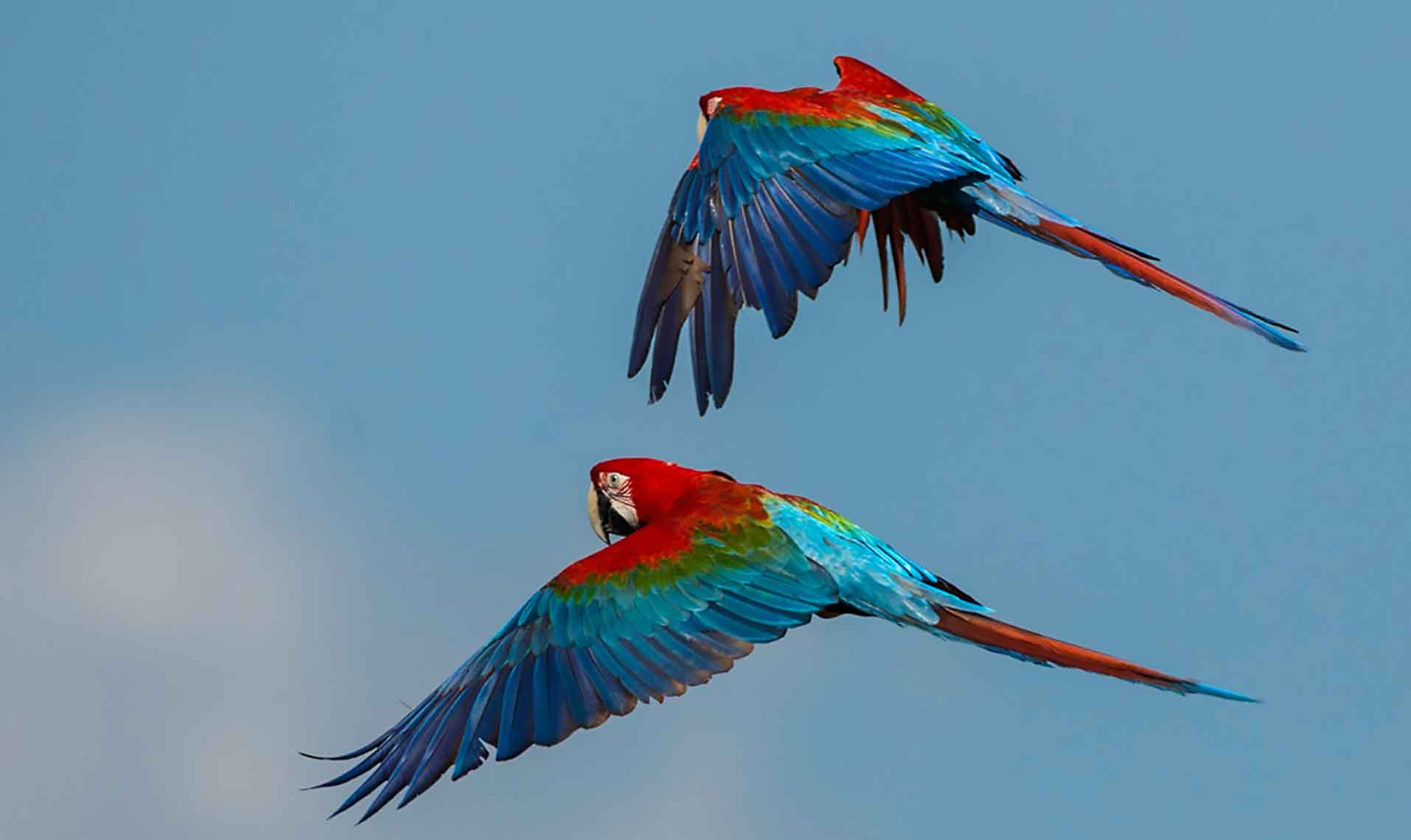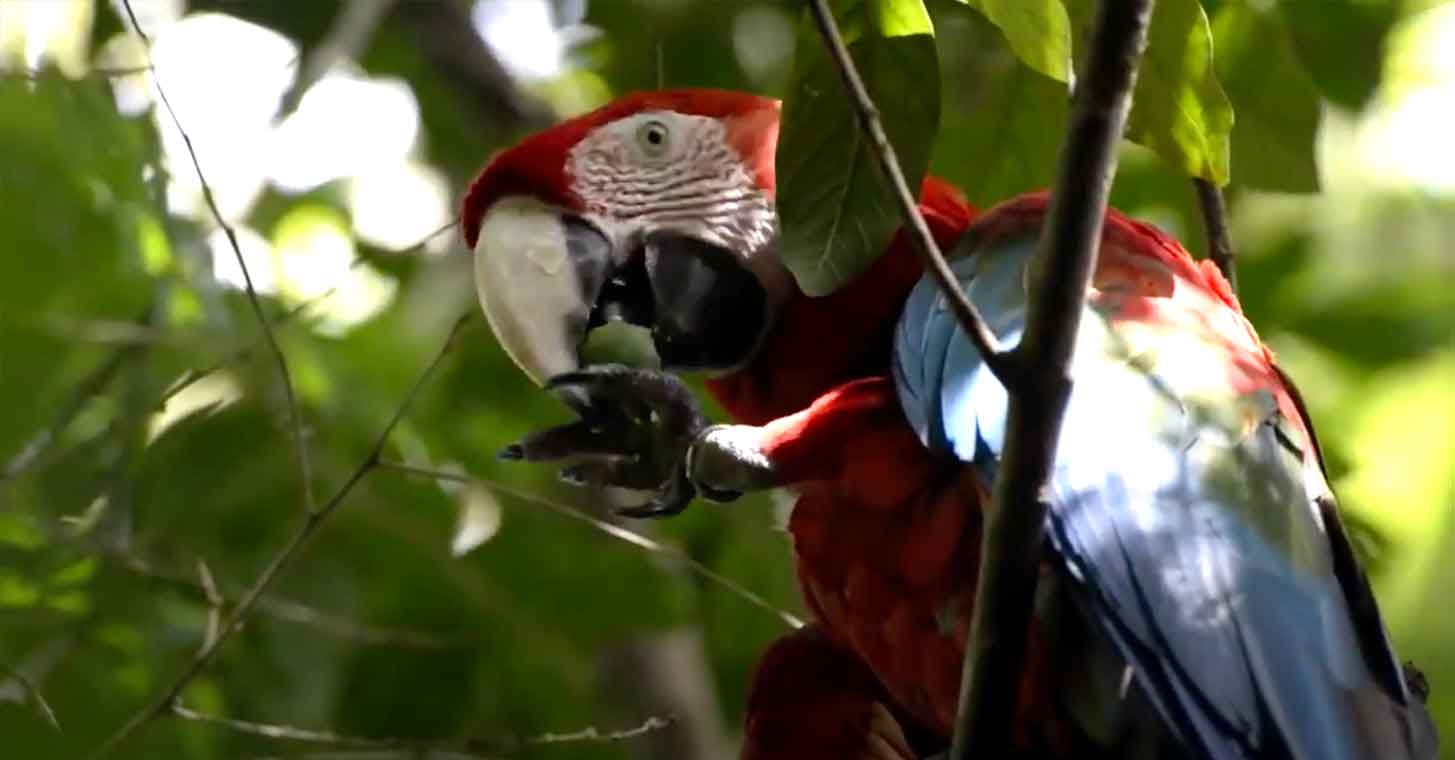Rewilding – The Return of the Macaw
A flash of scarlet and green, a cry of unearthly clarity, the macaw is not just a feature of South American life, but central to the belief systems of many native peoples.
By Writers Name, Contributor
A Messenger of Gods & Ancestors
Many Central and South American tribes consider the macaw to bring healing through light and colour. The Inga tribe in Colombia hold it sacred and the Bororo tribe in Brazil view it as a messenger of gods and ancestors. And we all know just how magical macaws are … their brilliant shades, their ability to mimic human speech – it’s no surprise that they’ve been both worshipped and hunted, valued and traded. Today the red and green macaw is a critically endangered species in Argentina.
Let’s start with the difference between a parrot and a macaw. All macaws are also parrots; they’re a subspecies of the Psittacoidea family, and generally bigger than parrots, having a section of their face bare of feathers, which is what makes them distinctive. Today, the flight of a flock of macaws in the rainforest is both magnificent and, sadly, rare.
And that’s where Kristine Tompkins comes in, with a remarkable mission, Tompkins Conservation & Fundacion Rewilding Argentina has bred and recovered red and green macaws with the goal to reacclimatise and train them for release back into Iberá Park, Argentina, a place they’ve not been seen in the wild for over a century.
How many wild macaws are left in the world?
The simple answer is, not enough. All 17 macaw species are listed on the IUCN Red List of Threatened Species, and while some are still abundant, more than a quarter are critically threatened or endangered. It’s estimated that there are more macaws in captivity than in the wild.

Image credit: Tompkins Conservation
We’ve all seen a macaw, even if we mistook it for a parrot, and we may think we know something about what a macaw is, but of course, unless we’ve seen them in their native habitat, living their natural life, we don’t. A bird in captivity is a creature in a cage, imprisoned and unable to express its essential nature. For example, macaws are a symbol of sacred union because they mate for life, and that life can be up to eighty years long. No zoo or wildlife sanctuary can give a macaw the ability to choose a mate from a flock, to nest and share food and groom with their life partner, to raise young in their natural environment. And without a life in the wild, nothing we see a macaw do, from copying our speech to preening itself, can be considered natural.
From poaching for food and trade in pet stores, to loss of habitat, we – humanity – have changed the fundamentals of the world for which the macaws were uniquely suited. Their ability to travel long distances makes them a key jungle species, because they spread seeds that extend the forest. Without macaws we lose the forest, and as we damage the forest we lose the macaws. Much needs to change if we are to continue to appreciate the true nature of the macaw in the wild. Tompkins Conservation, along with many other organisations, is working to reverse the decline of the macaw populations.
“The wounds we have inflicted on the earth can be healed… but if it is to be done, it must be done now. Otherwise, it may never be done at all.”
Jonathon PorrittBritish environmentalist & writer
It’s demanding work, both raising young birds and equipping them with the skills they need to survive in their complex wild ecosystem. Rewilding is about so much more than captive breeding – it requires us to understand how species interrelate, to operate a hands off approach that also reintegrates threatened species from rare plants to over-hunted animals and that respects the natural world.
To learn more about the sacred nature of the macaw and the work of Tompkins Conservation, join Kristine Tompkins on a life-changing Hosted Experience, exploring the Argentinian wetlands at Iberá National Park.
This exclusive opportunity is an incredible way for people championing conservation projects around the world to spend time with Kristine and the Rewilding Argentina team to learn about her journey and experience.
The Hosted Experience with Kristine Tompkins at Iberá National Park is organised by Satopia Travel in partnership with Journeys with Purpose.
Apply to join the Guestlist and join Kristine Tompkins in Argentina.








